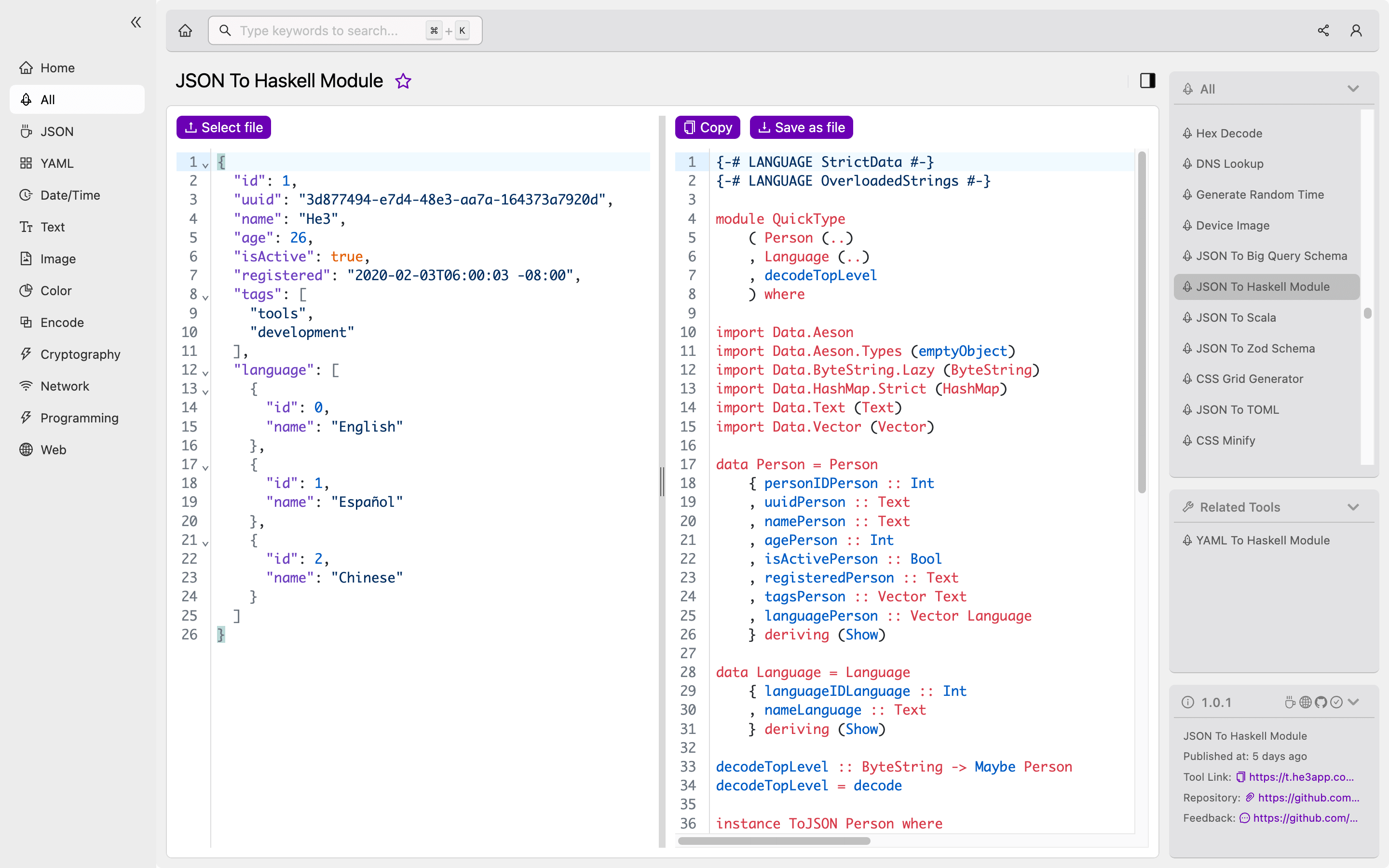Introduction
JSON or JavaScript Object Notation is widely used in modern web programming for data interchange between servers and clients. JSON is a lightweight data format that is easy to read and write for humans, and easy to process for machines. Haskell, on the other hand, is a purely functional programming language with a strong static type system. In this article, we will explore how to efficiently convert and parse JSON data in Haskell using the JSON To Haskell Module tool.
How to Use JSON To Haskell Module
JSON To Haskell Module is a tool available in the He3 Toolbox that can be used to convert a JSON file to a Haskell module. This tool makes it easy to parse JSON data in Haskell without having to manually define data types and parsers for each JSON field.
To use JSON To Haskell Module, simply follow these steps:
- Install the He3 Toolbox (https://t.he3app.com?paws)
- Open the toolbox and navigate to the “JSON To Haskell Module” tab
- Upload your JSON file using the “Choose file” button
- Customize the options as needed
- Click the “Convert” button to generate your Haskell module

Key Features
The JSON To Haskell Module tool has the following key features:
- Easy to use interface for converting JSON to Haskell modules
- Customizable options for data type and module names
- Automatic generation of data types and parsers for JSON fields
- Output module can be easily integrated into Haskell programs
Scenarios
JSON data can have various structures, which can make it challenging to parse and work with in a statically typed language like Haskell. Here are some scenarios where JSON To Haskell Module can come in handy:
- Parsing JSON responses from REST APIs
- Reading configuration files in JSON format
- Processing JSON data for data analytics or machine learning applications
Misconceptions
There are a few misconceptions about JSON To Haskell Module that we would like to clear up:
- JSON To Haskell Module is not a standalone tool, it is only available as part of the He3 Toolbox.
- JSON To Haskell Module does not support all JSON data structures, although it can handle most common scenarios.
- JSON To Haskell Module does not guarantee perfect parsing of all types of JSON data, as there can be variations in JSON formatting.
FAQs
Q: Can I use JSON To Haskell Module with non-English characters in my JSON data?
A: Yes, JSON To Haskell Module supports Unicode encoding and can handle non-English characters.
Q: Can I customize the parser behavior for specific JSON fields?
A: Yes, JSON To Haskell Module generates data types and parsers that can be customized manually to suit specific parsing requirements.
Q: Can JSON To Haskell Module generate modules for nested JSON data structures?
A: Yes, JSON To Haskell Module supports nested JSON data structures and can generate modules with nested data types and parsers.
Conclusion
In conclusion, the JSON To Haskell Module tool is a powerful tool that can simplify the process of converting and parsing JSON data in Haskell. With its user-friendly interface and customizable options, developers can efficiently work with JSON data without sacrificing the benefits of static typing and functional programming.
Reference Links:
